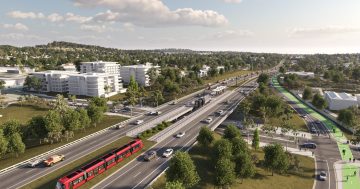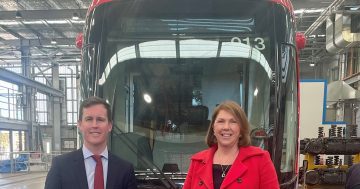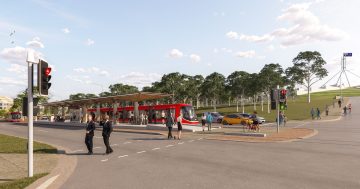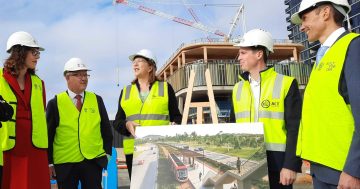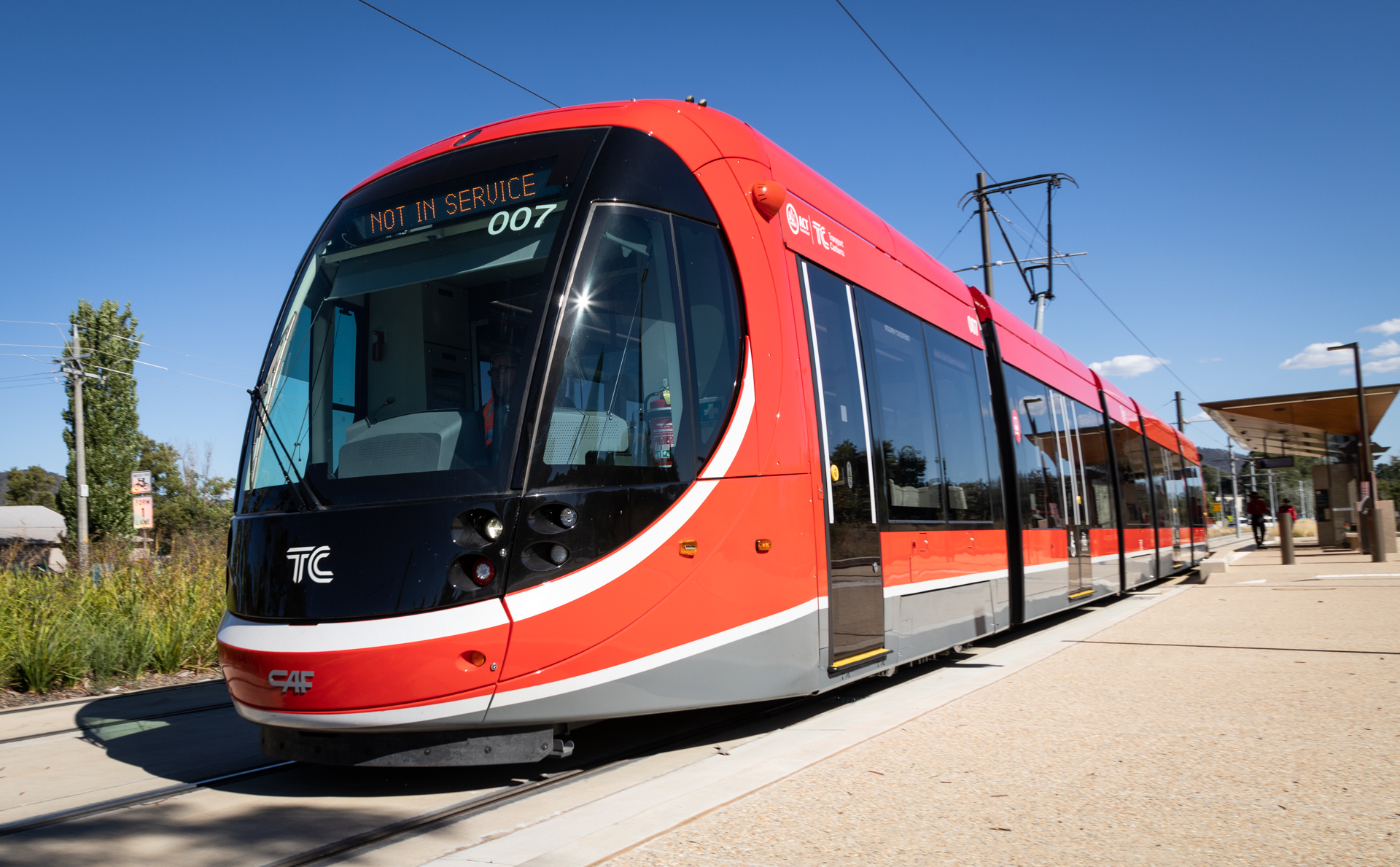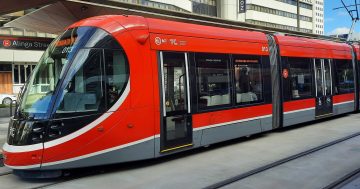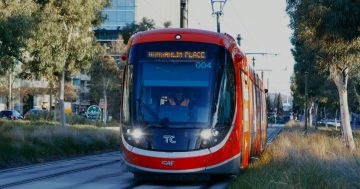
Light rail has been put back on the agenda ahead of the October election. Photo: Region Media.
The ACT is on track to have more light rail elections than routes after the Canberra Liberals committed to conducting an independent inquiry into where the next route should be built – with Belconnen a likely option.
Stage 2 of the current plan will see light rail extended from Civic to Commonwealth Park by 2024, and then from Commonwealth Park to Woden.
However, the Liberals’ transport spokesperson Candice Burch said people had been asking her about a Belconnen to the airport route.
“We still have not heard from the government as to why that is not the case,” she told an election forum last night (15 September).
ACT Election Round-Up
Belconnen to the airport via the city is the third stage of the current light rail plan, while Stage 4 will then extend the line from Woden to Tuggeranong via Mawson.
Chair of the Public Transport Association of Canberra Ryan Hemsley accused the Liberals of virtue signalling on the issue with no real clarity about where they stand after throwing the suggestion into the mix just weeks out from the election.
“At least at the 2016 election you knew what the party stood for … but to announce this weeks before the election – uncosted and with no timeline outlined – is really disappointing,” he told Region Media.
“They have had four years to come up with a light rail policy – we need real commitments with funding attached.”
Mr Hemsley said he supports the Belconnen to airport route but wants to see a detailed proposal from the Liberals.
“If they have a detailed Stage 3 proposal that would be great,” he said.
“They appear to oppose the Government’s plan but the frustrating thing is that they are all very hazy about it. But I would love to be proven wrong.”
Transport Minister Chris Steel also took a swing at the Liberals’ proposal, saying the study would cause substantial construction delays.
“The stance of the Canberra Liberals would undo years of planning work and likely mean that any new construction work would be put off for decades,” he said.
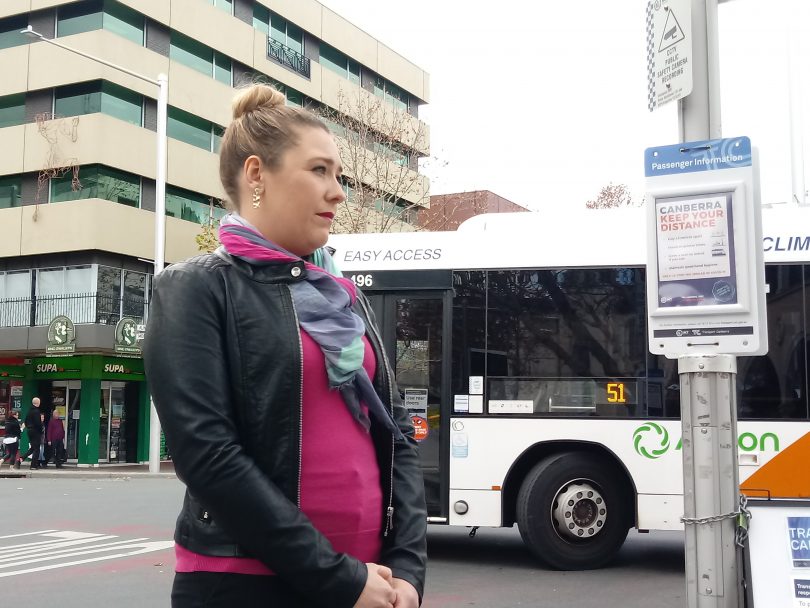
Liberals’ transport spokesperson Candice Burch says a new study is needed into Stage 2. Photo: Region Media
The Liberals also tried to distinguish themselves from Labor on light rail in June when Opposition Leader Alistair Coe said the government had mismanaged the entire process and called for the complete business case to be released.
Asked where he stood on Stage 2, he said the Liberals supported the extension of light rail in principle but would not back the current project without knowing all the pros and cons.
The ACT Greens have also come out with their own light rail announcement ahead of the election, calling for express services between the city and Woden.
The Greens estimate an express service would cut around 10 minutes from the 25 to 30-minute journey.
They also say trams should be designed to allow for better technology to be installed over the coming years.
“The National Capital Authority is requiring long wire-free sections. These slow the trip because the tram has to limit its speed to conserve power and/or make extra stops to recharge,” a Greens spokesperson said.
“Battery and recharging technology are rapidly improving. We need to design the trams and infrastructure to allow better technology to be installed in the next few years.
“This would allow express services to miss even more stations and extend the time saving above five minutes.”
Bypass tracks and cross-over points at stations so express trams miss congestion on the tracks were also proposed.
You can keep up to date with the RiotACT!’s election coverage here.












